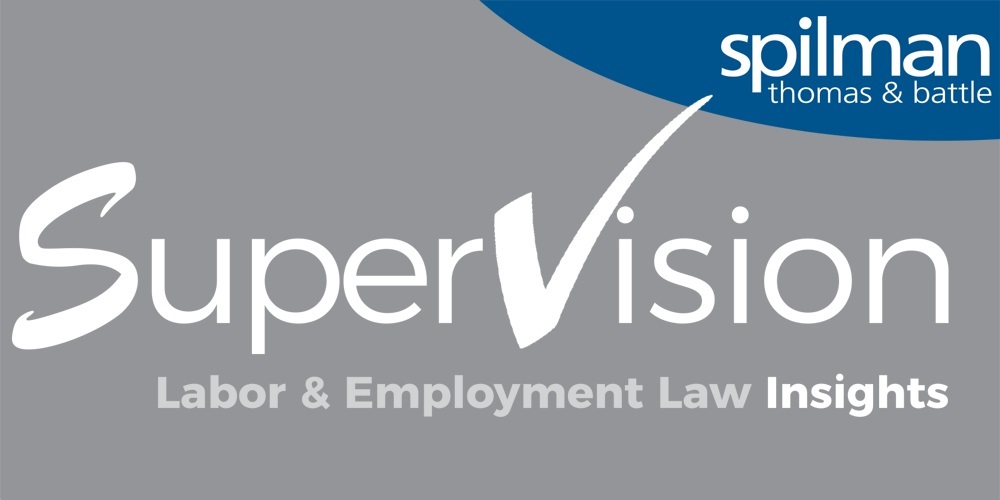Article
Resources
Article
Hot Topics: Labor and Employment Legal Issues Post-Pandemic

As vaccines are rolled out nationwide and are available to any adult who wants one, we appear on the cusp of a return to some level of normalcy. With that return to normalcy will come an increased focus on non-pandemic-related labor and employment issues. Between the pandemic and the new administration, changes in priority and enforcement are inevitable. While not intended to be a deep dive into these issues, this list of hot topics is intended to put these issues on your radar.
1) Increased OSHA investigations and enforcement - As noted in Mark Heath's article in SuperVision, OSHA is moving towards a COVID regulation. Moreover, with the personnel nominated by President Biden for the top OSHA posts, we can expect to see a return to greater enforcement actions.
2) Revised wage and hour guidance and increased enforcement - With employees working from home and sometimes places outside of their "home" in unprecedented numbers during the pandemic, it should come as no surprise that these remote work arrangements implicate the Fair Labor Standards Act and state law counterparts. Many COVID-19 employment lawsuits have often included claims for wage and hour violations. Employers have also found themselves contending with laws of states where they do not maintain operations because employees have relocated there while working remotely. Statistics suggest that a greater number of employees will remain remote even post-pandemic, and these issues will not abate. With this structural shift in where work is performed, expect an increase in the number of wage and hour claims, including violations of overtime rules, as well as the potential for guidance from the Department of Labor on these remote work situations.
3) Greater LGBTQ+ protections - In June 2020, the United States Supreme Court ruled that the prohibition on sex discrimination contained in Title VII of the Civil Rights Act of 1964 extends to discrimination based on sexual orientation and gender identity. Known as the "Bostock" ruling, the Court said that “it is impossible to discriminate against a person for being homosexual or transgender without discriminating against that individual based on sex.” Post-Bostock, there will be an increase in lawsuits asserting gender identity and sexual orientation discrimination, harassment, and other legal claims. In addition to Bostock, on January 21, 2021, President Biden signed Executive Order 13988, Preventing and Combating Discrimination on the Basis of Gender Identity and Sexual Orientation, extending the Bostock decision to other federal laws prohibiting discrimination based on sex.
4) Increased EEOC enforcement and involvement - Almost immediately following his inauguration, President Biden named the two Democratic members of the EEOC as its Chair and Vice-Chair, terminated the EEOC General Counsel appointed by President Trump, and appointed a veteran EEOC lawyer as the acting general counsel. While the EEOC will have a Republican majority until July 2022, we expect to see a return to the more aggressive enforcement seen under the Obama administration, especially in light of the recent Bostock ruling.
5) Paid family leave - President Biden recently announced a push to provide 12 weeks of paid family leave, expanding the Family and Medical Leave Act ("FMLA"). Expanding on the paid leave seen during the COVID-19 pandemic, the Biden administration's American Families Plan would fund paid family leave through tax increases. As proposed, the plan would phase in over a 10-year period and would provide paid parental, family illness, personal illness or safety-related leave. At this juncture, it is not clear whether this program would apply to those employers presently covered by the FMLA (employers with 50+ employees in a 75 miles radius), or to the more expansive definition of employers covered by the Families First Coronavirus Response Act.
6) A reinvigorated National Labor Relations Board and increased labor activity - We have already seen pro-labor appointments to the NLRB by the Biden administration, and as Mitchell Rhein notes in his article in SuperVision, signals by Acting General Counsel Ohr point to increased and expanded enforcement activity. Moreover, while the Board is presently Republican-controlled, expect that to change this fall. Under a Biden administration and with a soon-to-be Democratically-controlled Board, expect to see the following changes:
- A return of the "ambush election" rules previously implemented during the Obama administration.
- Unions will likely regain the right to use employer email systems during a campaign.
- "Micro" bargaining units will come back into favor.
- More 10(j) injunctive actions by the Board to temporarily enjoin unfair labor practices by employers.
Additionally, in looking towards future actions by a Biden administration, we also think the following changes may be seen:
- Issuance of a rulemaking to broaden the definition of employee to include independent contractors.
- Attempt to eliminate an employer’s ability to hold mandatory meetings during a campaign.
- Movement toward card checks, avoiding union elections altogether.
- A roll back of the current standard for reviewing employer misconduct, making it easier to find employers in violation of Section 7 of the Act.
Changes in policy and enforcement occurs with every new President, but it is particularly acute here with the change in political party in the White House and post-COVID-19. The Spilman Team is committed to guiding you through these hot topics and any other issues facing your workforce.




